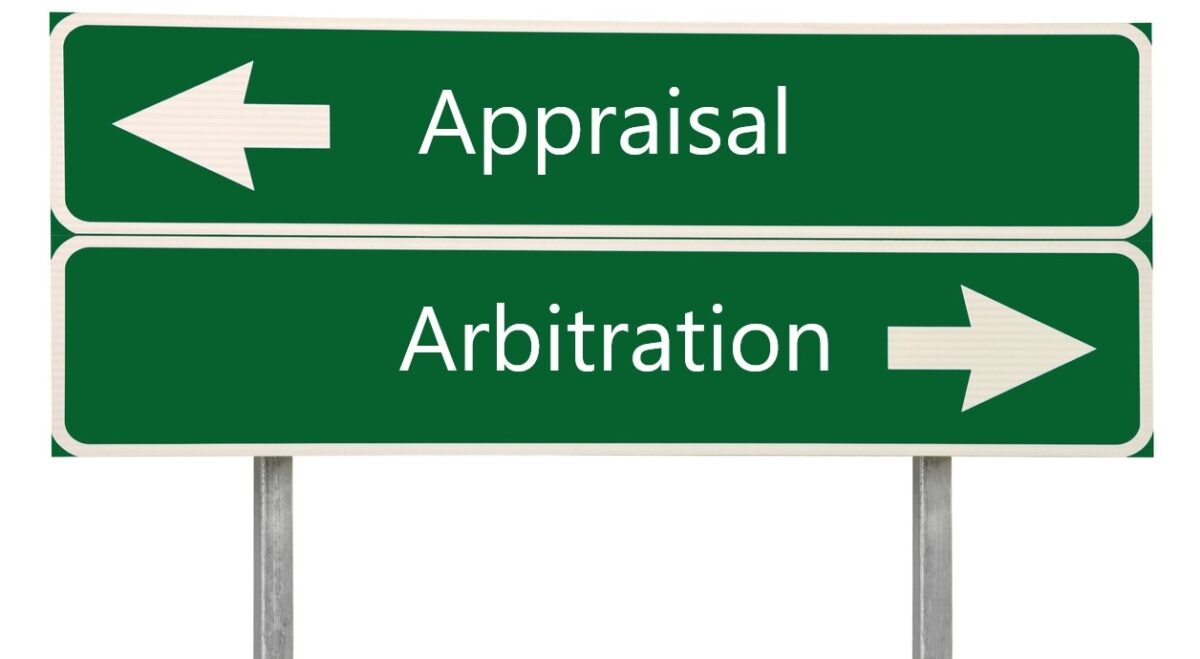A Florida federal judge recently wrote the following regarding a dispute over an appraisal:
Under Florida law, appraisal requirements in an insurance contract are treated as arbitration provisions, ‘narrowly restricted to the resolution of specific issues of actual cash value and amount of loss.’ Galindo v. ARI Mut. Ins. Co., 203 F.3d 771, 776 (11th Cir. 2000) (quoting U.S. Fid. & Guar. Co. v. Romay, 744 So. 2d 467, 469 (Fla. Dist. Ct. App. 1999)).1
If you were to read this case Order and the cited opinions, the answer to the post would be “yes.” But not so fast my friend.
Older cases and the logic of them have to be checked to see if they have been overruled. If the judge who wrote the above opinion reads this blog, the judge’s law clerks may have some explaining to do because newer case law is simply contrary to the quoted statement and the older overruled cases it relies upon:
Nationwide acknowledges Allstate Insurance Company v. Suarez, 833 So.2d 762 (Fla.2002), in which the Florida Supreme Court held that an appraisal provision for property damage in a homeowner’s insurance policy was not an agreement to arbitrate. Nationwide argues that Suarez did not specifically address the appealability of an order involving appraisal and points out that courts have exercised jurisdiction over non-final appeals of orders involving appraisal prior to Suarez. See Delisfort v. Progressive Express Ins. Co., 785 So.2d 734 (Fla. 4th DCA 2001); Intracoastal Ventures Corp. v. Safeco Ins. Co. of Am., 540 So.2d 162 (Fla. 4th DCA 1989); United Servs. Auto. Ass’n v. Modregon, 818 So.2d 562 (Fla. 2d DCA 2002); U.S. Fid. & Guar. Co. v. Romay, 744 So.2d 467 (Fla. 3d DCA 1999); Fla. Select Ins. Co. v. Keelean, 727 So.2d 1131 (Fla. 2d DCA 1999).
Suarez plainly held that an appraisal provision is not an agreement to arbitrate. It follows from Suarez that an order granting or denying an appraisal is not appealable as an order involving entitlement to arbitration….The cases cited above have accordingly been overruled by Suarez on the issue of appealability of an order involving entitlement to an appraisal.2
The Florida Supreme Court has been adamant that appraisal is not to be treated as arbitration:
It is clear from a plain reading of the clause that an informal appraisal proceeding, not a formal arbitration hearing pursuant to section 682.06, Florida Statutes (1999), was intended and agreed upon by the parties in agreeing to the appraisal provisions of the policy. See Liberty Mut. Fire Ins. Co. v. Hernandez, 735 So.2d 587, 589 (Fla. 3d DCA 1999) (‘[T]he clause contemplates inspection and valuation by each appraiser individually, not a trial-type hearing.’).
We disapprove of the decisions in Sheaffer and Hoenstine, because the appraisal clauses in those cases were substantially similar to the one in the present case, and a plain reading of those clauses reveals that formal arbitration was not contemplated or agreed upon by the parties. In Sheaffer, the First District went beyond the plain meaning of the appraisal clause when it considered that the appraisers would have to ‘exercise … quasi-judicial authority to resolve the dispute.’….Further, we disapprove of the analysis that ‘the appraisal provision neither excludes application of the Florida Arbitration Code, nor sets forth procedures inconsistent with the Arbitration Code.’ …Once a trial court has determined that the appraisal provisions of a contract of insurance have been properly invoked, further proceedings should be conducted in accord with those provisions, rather than by the wholly different proceedings contemplated by an agreement to arbitrate.
Thus, we agree with the Third District’s conclusion in this case that ‘the agreement specifically provides for an appraisal. It is difficult to imagine that a formal arbitration hearing was within the contemplation of the parties when entering into the agreement.’…Once the trial court in this case found that the Suarezes properly invoked the appraisal clause and directed the parties to appraisal proceedings, the umpire correctly followed the trial court’s ruling by refusing to proceed under the formal procedures of the Arbitration Code.3
The answer to the post in “no.” Appraisal is not governed by arbitration in Florida.
While the Florida Supreme Court Justices may have a hard time imagining how a formal arbitration hearing could contemplated, all they would have to do is read, Rhode Island Appraisals—The Arbitration Act Applies to Determine the Partiality of Appraisers and Umpires, to learn how judges in another state have such imagination and find that arbitration does apply to insurance appraisals.
The first rule to determine how an appraisal is supposed to be conducted is to determine which state law applies. While Florida Supreme Court Justices may not be aware of it, the readers of this blog know that appraisal rules vary from state to state.
As a last-minute reminder, Steve Badger and yours truly will make a presentation about the hottest issues involving appraisal next week at the IAUA Conference in Houston, Texas. I will also be giving a very inspirational speech you do not want to miss if you are in the appraisal or umpire business, which is separate from my joint presentation with Steve Badger. My understanding is that over 120 people have registered for this event and there is room for only ten more. Hope to see you there. Here is the link.
Thought For The Day
When a subject becomes totally obsolete we make it a required course.
—Pete Drucker
1 Baytree v. Clear Blue Specialty Ins. Co., No. 6:22-cv-2041, at *12 (M.D. Fla. July 11, 2023).
2 Nationwide Mut. Fire Ins. Co. v. Schweitzer, 872 So.2d 278 (Fla. 2004).





